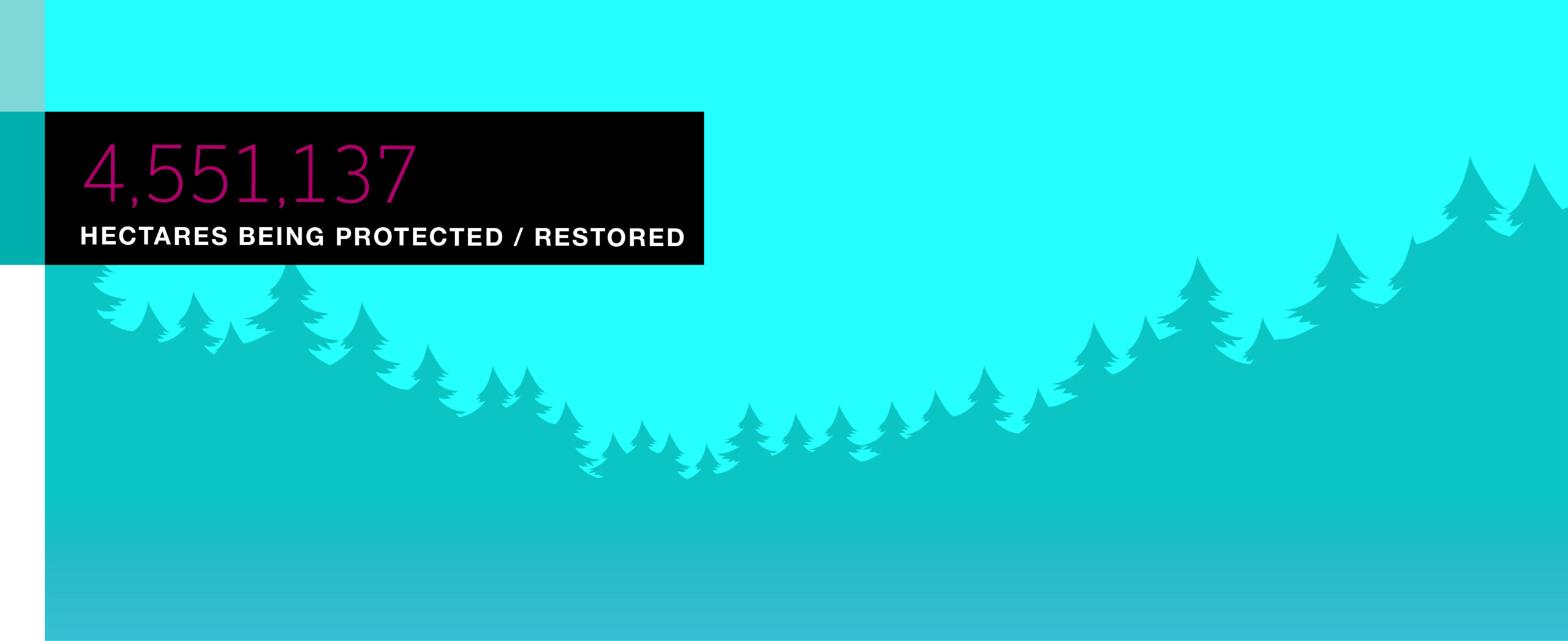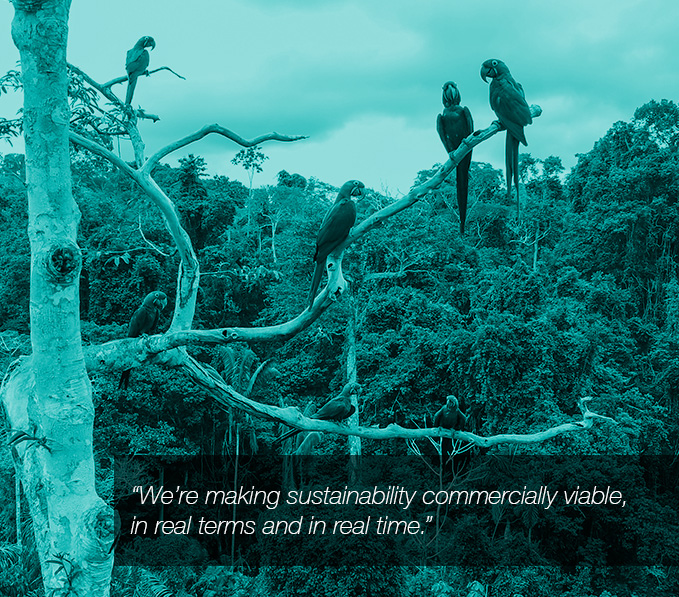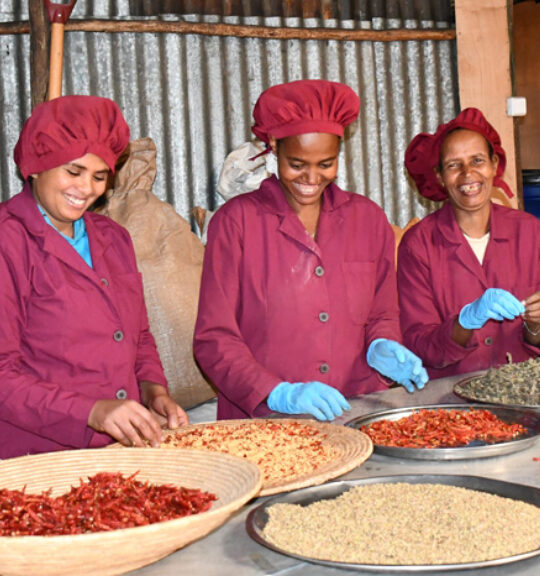Our Impact


Many imagine that protecting and restoring nature means removing humans from the equation, but that’s not the reality on much of this planet. From the rainforests of the Amazon to the National Parks of the UK, people exist on the land, some of whom have been there for thousands of years.
They need to be able to do so sustainably.
Palladium projects and partnerships are delivering deeply innovative, nuanced approaches to help landowners and communities curb deforestation, restore millions of hectares of woodland, peatland, and crucial forest, and do it all in a way that leaves people with better livelihoods than they had before. We’re making sustainability commercially viable, in real terms and in real time.
Investment for Forests and Future
It’s not a process that happens overnight, but it’s one that many of our teams have made it their mission to work towards and achieve. Our flagship Partnerships for Forests is one such project. In 2023 alone, the UK-funded project protected or restored over 4 million hectares of forests around the world. To put it into perspective, one hectare is about the size of a traditional running track.
Partnerships for Forests puts restoration and people at the heart of its mission, and it does so by supporting the development of Forest Partnerships. These are partnerships between private sector companies, public sector organisations and people—the communities that depend on forests for their livelihoods—that catalyse investment in forests and sustainable land use.
A partnership could, for example, be a large-scale deal between government, smallholders and private sector companies that reforests degraded land to mixed forest and generates benefits for all partners. Or it could aim to transform a whole commodity sector through the widespread implementation of commercially viable but sustainable practices.
For Ecoflora in Colombia, their partnership with Partnerships for Forests meant receiving support to take their small but innovative product idea to scale through improved business processes. Ecoflora was using the jagua fruit to create a natural and safe blue food colorant.
Partnerships for Forests started working with Ecoflora in 2019 to help structure a supply chain that creates positive environmental impact in areas currently used for cattle ranching by supporting communities to harvest jagua.
Not only can jagua be planted in areas that were previously used for cattle, but it’s resilient, regenerative, and can grow alongside other agroforestry crops or livestock. The team helped Ecoflora to secure agreements with local communities, including smallholders, who have known the fruit for a long time and with a variety of cattle ranchers that were open to changing how they utilised the land. Those communities working with Ecoflora also signed agreements with an environmental agency so that they could receive payments for the ecosystem services of protecting the forests while harvesting the jagua.
In 2023, Ecoflora obtained FDA approval for their product, giving them an opportunity to attract major market investments at a global scale – a milestone that would have been far harder to reach without support from Partnerships for Forests.
Nature Restoration at Scale
It’s thanks to the foundation that programs like Partnerships for Forests have built that we can further expand our reach in forest and land restoration around the world. One such initiative is Regeneration, our joint venture with Systemiq, which is harnessing market demand to scale nature positive and low carbon commodity supply chains across the tropics.
By partnering with corporate buyers, investors, donors, and others to build value chains for regenerative tropical commodities, Regeneration is protecting standing forests and promoting forest growth. Found wild in the forests or in sustainably managed agroforestry systems, these tropical commodities include cocoa, coffee, and honey. Through its finance facility, Rebuild, Regeneration is providing capital to protect at-risk value chains and safeguarding the incomes of forest-dependent communities in East and West Africa. In 2023, Regeneration brought 42,000 hectares of land under sustainable management.
Both Regeneration and Partnerships for Forests show us that restoring and protecting our planet’s precious forest systems is possible, but not without the proper capital and investment in the sustainable systems that provide the backbone of a regenerative future.
Protecting and restoring nature is our best move in the fight against climate change, reducing the impact of people on planet by reshaping our engagement with the natural world.




